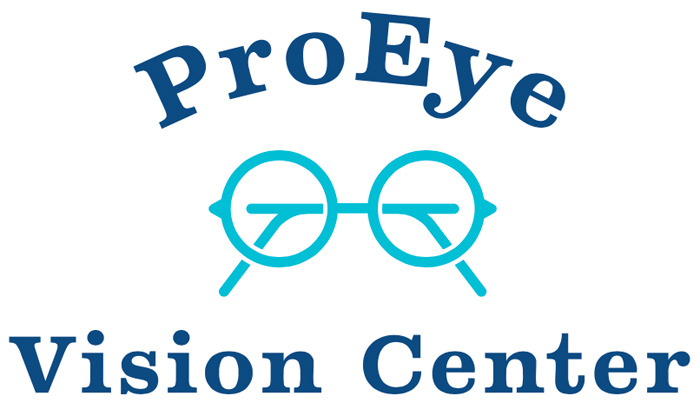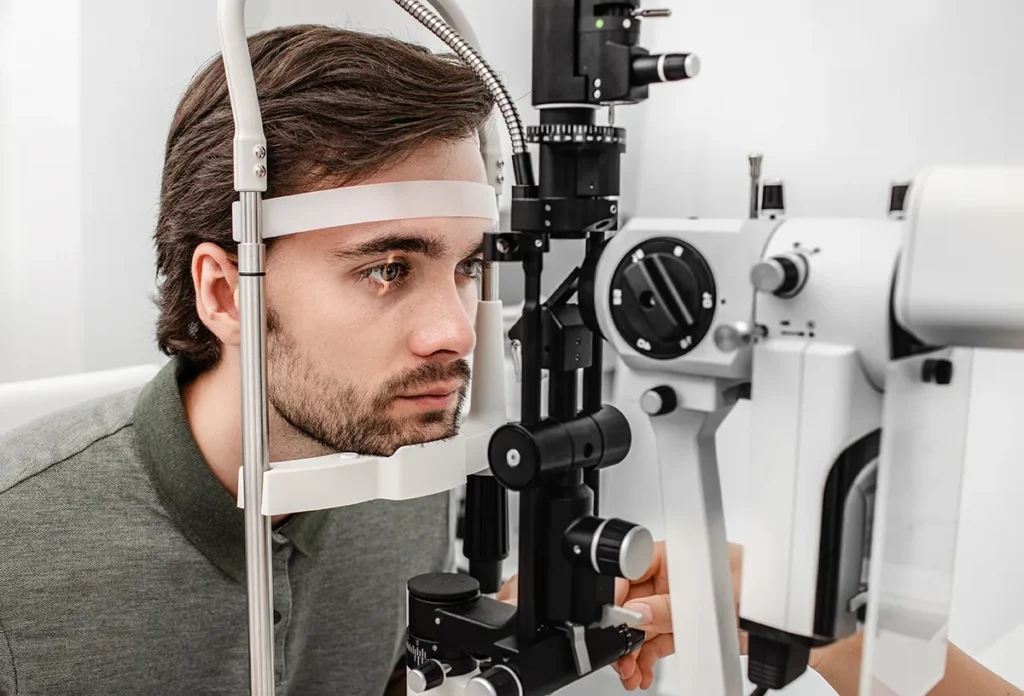Many people think of eye exams as just a way to update their glasses or contact lenses prescription. However, at ProEye Vision Center, our comprehensive eye exams in Omaha and Lincoln evaluate far more than how clearly you see. Our optometrists also check for early signs of eye diseases and systemic health conditions that can affect other parts of your body.
In this blog, we’ll explore the range of issues a routine eye exam can detect and why scheduling regular checkups matters for your overall health.
Vision changes and eye focusing problems
While updating your prescription is a common reason for an eye exam, it’s only part of the picture. During a comprehensive eye exam, our eye doctors in Lincoln and Omaha evaluate how well your eyes function, work together, and focus. They look for issues that could impact your vision or overall well-being, including:
- Refractive errors such as nearsightedness, farsightedness, and astigmatism
- Presbyopia, which affects close-up vision as we age (it typically starts to develop after 40)
- Eye teaming or alignment issues that may cause eye strain, headaches, or double vision
- Color vision deficiencies
- Depth perception challenges and peripheral vision loss
Uncorrected vision problems can lead to fatigue, difficulty reading, driving issues, or frequent headaches. Regular exams ensure your prescription is accurate and that your eyes are functioning optimally.
Early detection of eye diseases
Many eye conditions develop slowly without obvious symptoms. Routine exams allow our optometrists to detect these issues early, before permanent vision loss occurs. We check for:
- Glaucoma: optic nerve damage caused by elevated eye pressure
- Cataracts: clouding of the lens that can blur vision
- Macular degeneration: central vision loss that makes daily tasks challenging
- Diabetic retinopathy: damage to retinal blood vessels from diabetes
- Retinal detachment: a serious emergency that can threaten your eyesight
Early detection opens the door to more treatment options and better outcomes. Even if your vision seems normal, silent conditions may be developing.
Systemic conditions that affect the eyes
Your eyes really are a window into your overall health. A thorough eye exam may identify signs of the following systemic conditions:
- High blood pressure: changes in retinal blood vessels
- Diabetes: early retinal changes before diagnosis
- High cholesterol: deposits in or around the eyes
- Autoimmune disorders: inflammation indicating conditions like lupus or rheumatoid arthritis
- Certain cancers: some forms of cancer may cause ocular symptoms
Because of this, regular eye exams play an important role in preventive health care.
Why everyone needs regular eye exams
Even if you don’t currently wear glasses or contact lenses, scheduling routine eye exams is essential. Vision can change gradually, and many eye diseases do not produce noticeable symptoms until advanced stages. Adults typically benefit from exams every one to two years, though children, older adults, and those with chronic health conditions may need more frequent checkups.
Stay ahead of eye problems
In summary, eyes can tell us a lot about a person’s overall health. During your eye exam, our optometrists can detect early signs of vision and systemic health issues. Schedule an appointment today to ensure your eyes and overall health stay on track.





